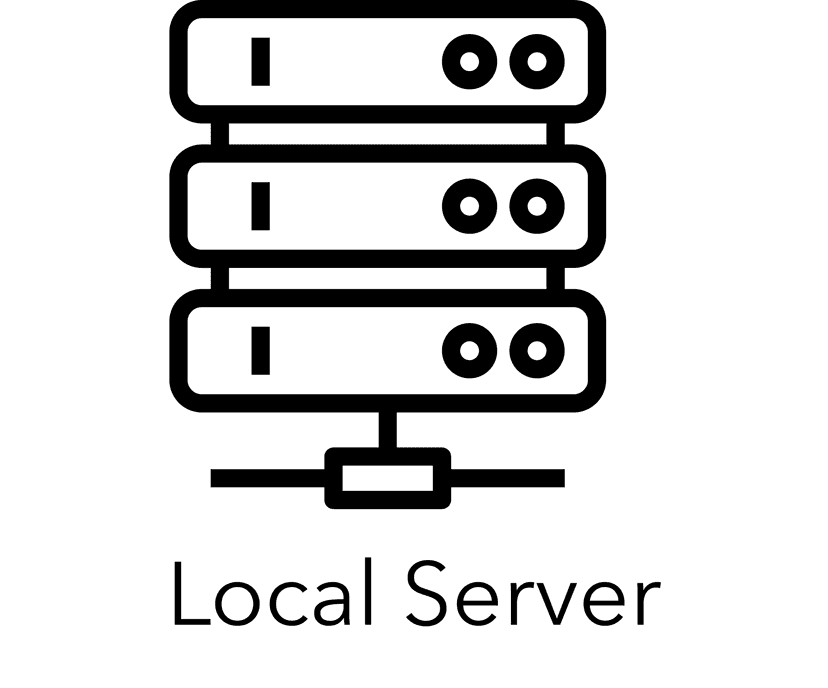Local Server

What is a local server?
Definition:
A local server is a computer that serves a client within the local network or LAN. That means that in most cases, it will not be connected to the internet. If it is connected to the internet, it will typically be protected with a password so not everybody can access its services.
Analogy:
A local server is like a shed in your backyard.
You have your main house that people can see. Anyone can walk by and knock on your front door. However, they cannot go into your backyard and access your shed, it is not open to the public.
The services your shed offers are only for you and those that you let access it.
In other words...
A local server is a server that is for private use only.
Why is a local server important?
It's one thing to know what a term means, but that is worthless if you don't know why you should know what a local server is in the first place. Let's break down the importance of this tech term based on two high level categories. We'll walk through an explanation as well as provide a score, 1-10, that shows you how much you should care about local servers.
Pre-Product: 1/10
The first will be if you do not have a product yet. This means that you don't have a physical product. Maybe you're in the ideation phase, or maybe you're almost ready to start development. Whichever it is, we'll get into why a local server is important and why you should or shouldn't care about it if you do not have a product.
If you don't have a product yet, then this term isn't much value to you. Go on with your day!
Live Product: 3/10
The second category is if you do have a live product. Maybe you just launched your business or maybe it's been live for years and you're continuing to improve its quality. Regardless of the scenario, if your product is live, a local server carries a different weight.
A local server still isn't too valuable to know when your product is live as 99% of the time, you will be accessing your product via the cloud. Your developers may use a local server to test the product or you may use a local server if there is some high proprietary and confidential reason to do so, but by majority you should be set.
Examples of a local server
So you know what a local server is, by definition. You know if you should care about it or not depending on your situation as a business/company/product. To dig in deeper, we will walk through some examples so we can make sure you really have a solid grasp on local servers.
Three common local servers:
The main benefit of a local server is that it will allow your developers to access web-site on their computer without needing the internet. We'll walk through three common local servers used around the world:
- Open Server
- Denwer
- Winginx
If you own your own server, then you are also not subject to the pains of server crashes if your cloud provider goes down.
At the end of the day, getting into the nitty-gritty of local servers becomes quite technical. So, if you aren't a developer, you don't need to spend much of your time worrying about it. If you are a developer, you should spend more time researching the topic to ensure you understand its function properly as you will be leveraging local servers quite frequently in your development career.
Key Takeaways:
- A local server is a server that is for private use only.
- If you don't have a product, you don't need to worry about what a local server is.
- If you do have a product, you only need to worry about a local server if you are a developer.
- There are tons of options out there as to local server providers you can leverage.

